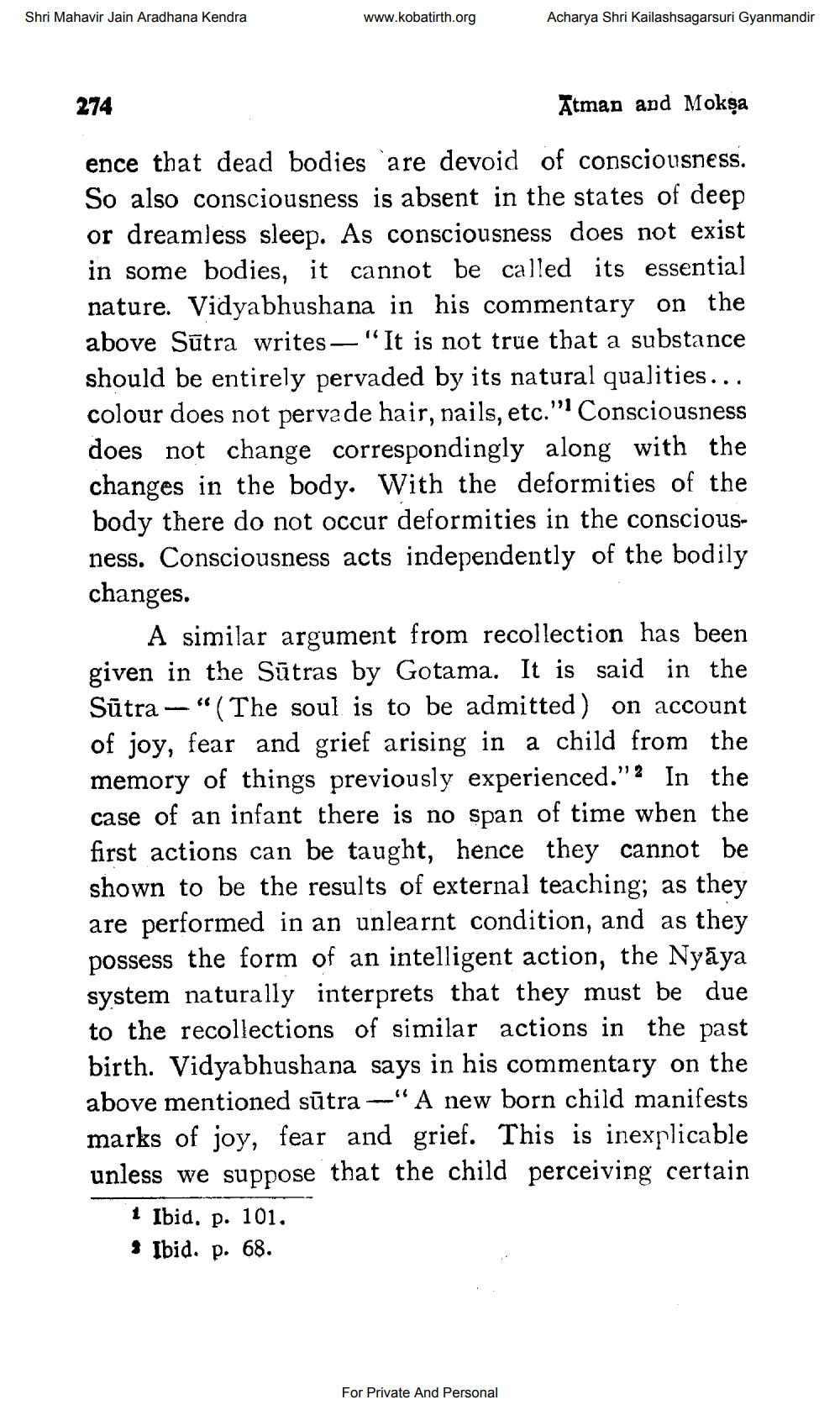________________
Shri Mahavir Jain Aradhana Kendra
274
www.kobatirth.org
Atman and Mokṣa
ence that dead bodies are devoid of consciousness. So also consciousness is absent in the states of deep or dreamless sleep. As consciousness does not exist in some bodies, it cannot be called its essential nature. Vidyabhushana in his commentary on the above Sūtra writes-"It is not true that a substance should be entirely pervaded by its natural qualities... colour does not pervade hair, nails, etc.' ." Consciousness does not change correspondingly along with the changes in the body. With the deformities of the body there do not occur deformities in the consciousness. Consciousness acts independently of the bodily changes.
1 Ibid. p. 101.
Ibid. p. 68.
A similar argument from recollection has been given in the Sutras by Gotama. It is said in the Sūtra"(The soul is to be admitted) on account of joy, fear and grief arising in a child from the "2 In the memory of things previously experienced.' case of an infant there is no span of time when the first actions can be taught, hence they cannot be shown to be the results of external teaching; as they are performed in an unlearnt condition, and as they possess the form of an intelligent action, the Nyaya system naturally interprets that they must be due to the recollections of similar actions in the past birth. Vidyabhushana says in his commentary on the above mentioned sutra A new born child manifests marks of joy, fear and grief. This is inexplicable unless we suppose that the child perceiving certain
"L
Acharya Shri Kailashsagarsuri Gyanmandir
-
For Private And Personal




